 W
WNational Hero is a status an individual can receive in Sri Lanka for those who are considered to have played a major role in fighting for the freedom of the country. The status is conferred by the President of Sri Lanka. The recipients of the award are celebrated on a Sri Lankan national holiday, National Heroes’ Day, held annually on 22 May. Every year, the President and general public pay tribute by observing a two minutes silence in their memory. The individuals are also celebrated on Sri Lanka Independence Day, held on 4 February. In this, the President or Prime Minister will typically address the nation with a speech honouring the National Heroes. The award has only been awarded to Sri Lankan citizens, but is not limited to this group.
 W
WPonnambalam Arunachalam was a Ceylonese civil servant and a member of the Executive Council of Ceylon and Legislative Council of Ceylon.
 W
WCharles Edgar Corea was a politician and a prominent freedom fighter of Sri Lanka.
 W
WCharles Edward Victor Seneviratne Corea was born in Chilaw, Sri Lanka, on 29 January 1871 to Charles Edward Bandaranaike Corea, a famous lawyer, and Henrietta Seneviratne. He was the youngest out of five children, three boys and two girls, Charles Edgar Corea, James Alfred Ernest Corea, Agnes Corea and Evangeline Corea. This family was acknowledged to be one of the wealthiest families in the whole of Ceylon. Victor's family was severely affected when Charles Edward Bandaranaike Corea died in 1872, leaving five children, of whom the youngest, Victor Corea, was only one year old. The five young children depended on their young, widowed 21-year-old mother to look after them. He attended the prestigious S. Thomas' College, Mount Lavinia, where he excelled in his studies.
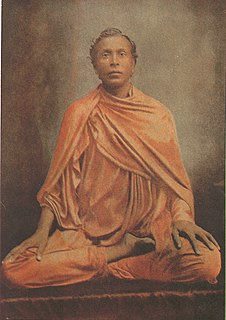 W
WAnagārika Dharmapāla was a Sri Lankan Buddhist revivalist and a writer.
 W
WWansapurna Dewage David alias Gongalegoda Banda was the leader of the Matale rebellion in 1848, pretender to the throne of Kandy and a national hero of Sri Lanka.
 W
WVen. Migettuwatte Gunananda Thera or Mohottiwatte Gunananda Thera was a Sri Lankan Sinhala Buddhist orator. He is known for leading the Buddhist side in debates between Buddhists and Christians in Baddegama, Udanwita, Waragoda, Liyanagemulla, Gampola, and Panadura, where the most famous of the debates took place. As a result of the debates, Buddhism in Sri Lanka saw a revival.
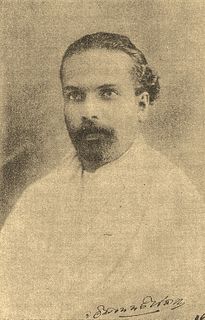 W
WBrahmachari Walisinghe Harischandra was a social reformer, historian, author and revivalist of Sri Lankan Buddhism He was a follower of Anagarika Dharmapala, who gave leadership to the Buddhist revivalist movement, after the lead given by Colonel Henry Steel Olcott. Walisinghe Harischandra is also regarded as the saviour of the citadel of Buddhism in Sri Lanka, Anuradhapura.
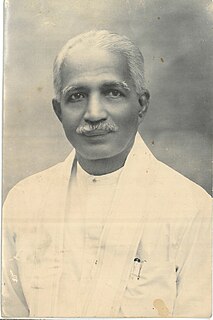 W
WDr. Cristopher William Wijekoon Kannangara was a Sri Lankan Lawyer and a politician, accredited often with being the Founder of the post independence island nation. Rising up the ranks of Sri Lanka's movement for independence in the early part of the 20th century, he moved on to play a pivotal role defending leaders of the independence movement in court and achieving vital legal victories contributing vastly to the cause of independence as a lawyer and orator, soon achieving the Presidency of Ceylon National Congress, the forerunner to Sri Lanka's Parliament UNP. Later, he became the first Minister of Education in the State Council of Ceylon, and was instrumental in introducing extensive reforms to the country's education system that opened up education to children from all levels of society.
 W
WVenerable Sikkim Mahinda, commonly known as S. Mahinda, was a Buddhist monk from the state of Sikkim. He was a poet and author, and participated in the Sri Lankan independence movement. Although he was from Sikkim, he identified himself as a Tibetan, presumably because it was more well known in Ceylon.
 W
WDuenuge Edward Henry Pedris was a Ceylonese militia officer and a prominent socialite. Pedris was executed for treason by the British Army under martial law during the 1915 Sinhalese-Muslim riots. Convicted in a three day Field General Court Martial under the terms of the Army Act, by passing the local legal system, his execution was viewed as unjust by the local population and a warning to local leaders. It hastened the movement toward independence, providing motivation and a martyr for those who pioneered the movement.
 W
WSir James Peiris was a prominent leader in the Sri Lankan independence movement, the first elected Vice-President of the Legislative Council of Ceylon and the first native Governor of Ceylon (Acting).
 W
WEdward Walter Perera was a Ceylonese barrister, politician and freedom fighter. He was known as the "Lion of Kotte" and was a prominent figure in the Sri Lankan independence movement, served as an elected member of the Legislative Council of Ceylon and the State Council of Ceylon.
 W
WWilmot Abraham Perera (1905–1973) was a Sri Lankan statesman and philanthropist. He was declared a National Hero in 1993. A member of parliament, he was Ceylon's first Ambassador to China.
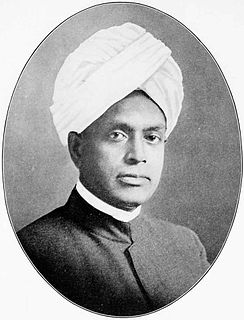 W
WSir Ponnambalam Ramanathan, CMG, KC was a Ceylon Tamil lawyer, politician and Solicitor-General of Ceylon.
 W
WDeekirikevage Saradiel widely famous as Utuwankande Sura Saradiel,translation:Saradiel the Hero of Mountain Utuwan is a Ceylonese gang leader and bandit who became a legendary figure in Sri Lanka known as the "Robin Hood of Sri Lanka". Some Sri Lankan scholars place him in the context of regional insurgencies of against British Colonial rule rather than a manifestation of local lawlessness or economic justice. Due to superstition he was believed to have the power of not being seen and that he was bullet proof. Many believe that this is because he had Henaraja "yantra" on his arm which lent him such powers.
 W
WDon Stephen Senanayake was a Ceylonese statesman. He was the first Prime Minister of Ceylon having emerged as the leader of the Sri Lankan independence movement that led to the establishment of self-rule in Ceylon. He is considered as the "Father of the Nation".
 W
WPiyadasa Sirisena was a Ceylonese pioneer novelist, patriot, journalist, temperance worker and independence activist. He was the author of some of the bestselling Sinhalese novels in early 20th century. A follower of Anagarika Dharmapala, Siresena was the most popular novelist of the era and most of his novels were on nationalistic and patriotic themes. Piyadasa Sirisena used the novel as a medium through which to reform society and became one of the leaders in mass communication in the early part of the 20th century. Piyadasa Sirisena is widely considered as the father of Sinhalese novel. Some of his novel were reprinted even in the 21st century.
 W
WHikkaduwe Sri Sumangala Thera was a Sri Lankan Buddhist monk, who was one of the pioneers of Sri Lankan Buddhist revivalist movement in the 19th century. He did a great service to improve the Buddhist Education in the country and was the founder of Vidyodaya Pirivena, Maligakanda in 1873 which was granted the university status later in 1959 by the Government of Sri Lanka. A veteran author and a fiery orator, he was a major figure in the Panadurawadaya, a religious debate held between Christian missionaries and Buddhist monks in 1873 at Panadura, Sri Lanka. He was well versed in Sinhala, Pali, Sanskrit, English, Buddhism, History, Arithmetic, and Archaeology and was one of the primary sources of information on Buddhism for the success of the Panadura debate.
 W
WWariyapola Sri Sumangala was a Buddhist monk who lived in the early 19th century in Sri Lanka. He was an Anunayaka of the Asgiriya Chapter. Sri Sumangala is known for taking down the Union Jack and re-hoisting the Sinhalese lion flag, before the convention that handed over control of the island to the British in 1815. Later during the rebellion of 1818, he removed the Tooth Relic of the Buddha from the Temple of the Tooth, and handed it over to the leaders of the rebellion. He was arrested and convicted for treason the same year.
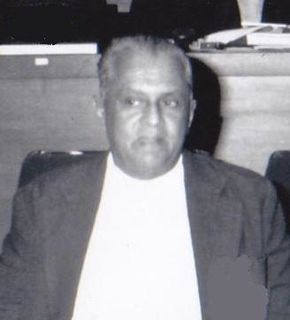 W
WCyril Esmond Lucien Wickremesinghe was a Ceylonese press baron, lawyer, and a successful entrepreneur. He also played key role in defeating Sirimavo Bandaranaike that bought United National Party's Dudley Senanayake to power in 1965's Parliamentary Election. He is also father of the United National Party leader and Prime Minister Ranil Wickremesinghe.
 W
WDon Richard Wijewardena was a Sri Lankan press baron who was a leader in the Sri Lankan independence movement. A successful entrepreneur, he established Lake House newspapers and played a major role in the independence movement.